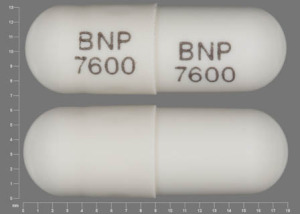Elmiron Disease Interactions
There are 2 disease interactions with Elmiron (pentosan polysulfate sodium).
Pentosan polysulfate sodium (applies to Elmiron) bleeding
Moderate Potential Hazard, Moderate plausibility. Applicable conditions: Thrombocytopathy, Coagulation Defect, Thrombocytopenia
Pentosan polysulfate sodium induces weak anticoagulant activity (1/15 the activity of heparin). Bleeding complications (ecchymosis, epistaxis, bleeding gums) have occurred. Increases in PT and PTT, as well as thrombocytopenia, have been reported rarely. Therapy with pentosan polysulfate sodium should be administered cautiously in patients with coagulation disorders, bleeding, or other conditions that may increase the risk for bleeding.
Pentosan polysulfate sodium (applies to Elmiron) hepatic impairment
Moderate Potential Hazard, Moderate plausibility. Applicable conditions: Liver Disease
The use of pentosan polysulfate sodium has not been studied in patients with hepatic insufficiency. Because there is evidence of hepatic contribution to the elimination of this drug, hepatic impairment may have an impact on its pharmacokinetics. Caution should be exercised when using pentosan polysulfate sodium in this patient population.
Switch to professional interaction data
Elmiron drug interactions
There are 80 drug interactions with Elmiron (pentosan polysulfate sodium).
More about Elmiron (pentosan polysulfate sodium)
- Elmiron consumer information
- Check interactions
- Compare alternatives
- Pricing & coupons
- Reviews (108)
- Drug images
- Side effects
- Dosage information
- During pregnancy
- Drug class: miscellaneous genitourinary tract agents
- En español
Related treatment guides
Drug Interaction Classification
| Highly clinically significant. Avoid combinations; the risk of the interaction outweighs the benefit. | |
| Moderately clinically significant. Usually avoid combinations; use it only under special circumstances. | |
| Minimally clinically significant. Minimize risk; assess risk and consider an alternative drug, take steps to circumvent the interaction risk and/or institute a monitoring plan. | |
| No interaction information available. |
See also:
Further information
Always consult your healthcare provider to ensure the information displayed on this page applies to your personal circumstances.


